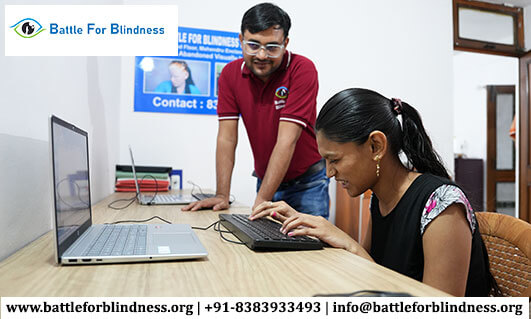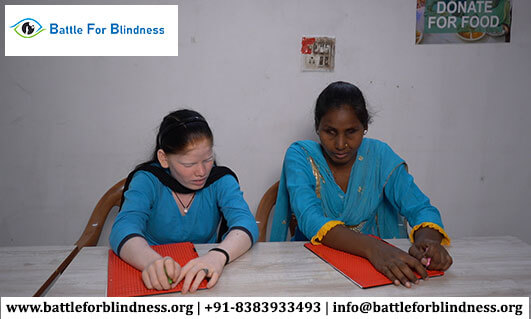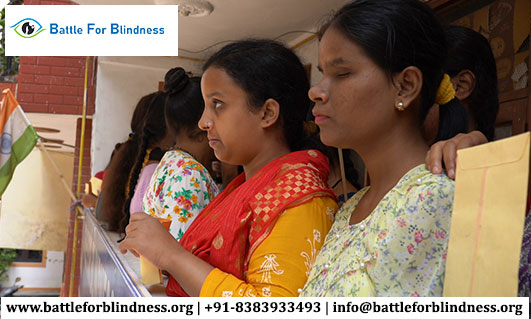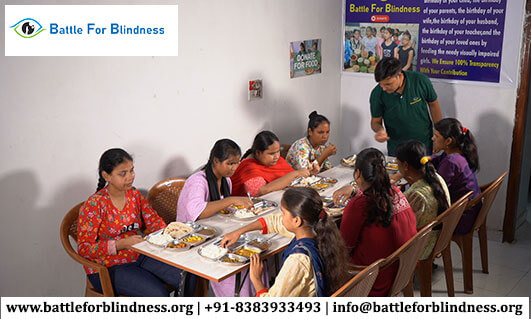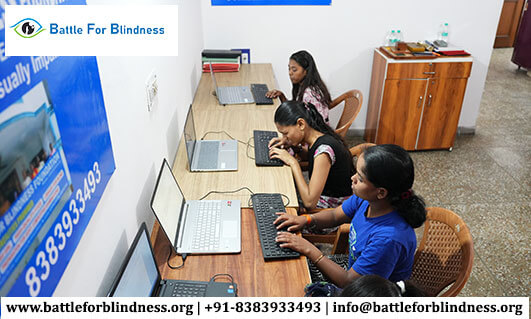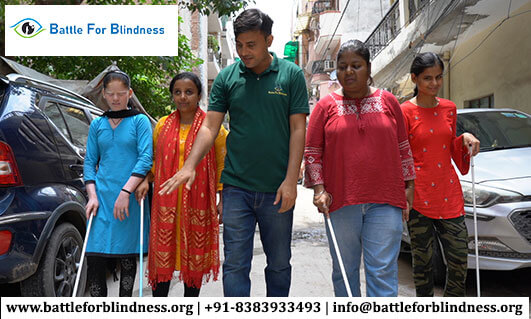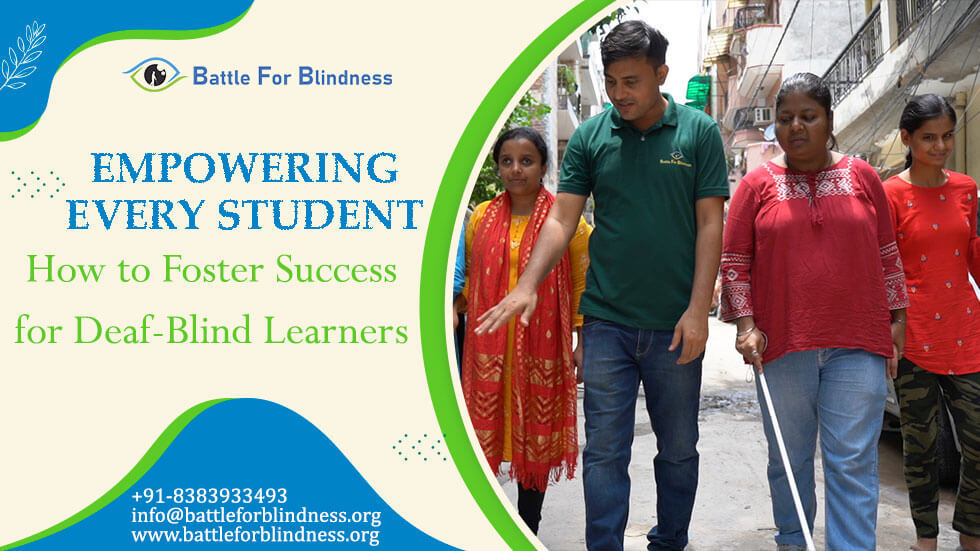
In the modern world, education is a fundamental right for every student, regardless of their abilities or disabilities. Among those who face unique challenges are deaf-blind learners, who experience a combination of both hearing and vision loss. These students, however, are far from helpless. With the right support, resources, and inclusive educational strategies, they can achieve their fullest potential.
In this blog post, we’ll explore ways to foster success for deaf-blind learners and provide actionable insights to ensure they are empowered and supported throughout their educational journey.
1. Understanding Deaf-Blindness: An Overview
Deaf-blindness is a condition where an individual experiences significant hearing and vision loss, making it difficult to access information and interact with the environment. This combination of impairments poses specific challenges, including limited access to communication and information, making it crucial to tailor educational approaches to each student’s unique needs.
While the exact causes of deaf-blindness vary, the challenges are often compounded by the lack of specialized resources and trained educators. It is essential to understand these barriers to provide students with the tools and accommodations they need for success.
2. Creating an Inclusive Learning Environment
Creating an inclusive classroom is the first step toward ensuring that deaf-blind learners thrive in education. Here are a few strategies to help make the learning environment more accessible:
- Use of Assistive Technology: There are various assistive technologies designed to support deaf-blind learners, such as braille displays, tactile signing systems, and speech-to-text apps. These tools help bridge communication gaps and provide access to educational content.
- Adaptive Tools: Braille books, magnifiers, screen readers, and customized seating arrangements are essential for making the physical and learning spaces more accessible.
- Communication Supports: For students who rely on tactile sign language or other methods of communication, it’s important to have trained staff and interpreters available to assist during class.
3. Tailored Communication Methods
Effective communication is one of the biggest hurdles for deaf-blind students. Since each learner’s degree of vision and hearing loss can differ, a personalized approach is necessary. Several methods can be employed:
- Tactile Sign Language: Tactile American Sign Language (TASL) is a common communication method for deaf-blind learners. It involves the teacher or interpreter signing directly into the student’s hands.
- Tactile Symbols: Some students may rely on tactile symbols, which are raised images or shapes that convey meaning when touched. These can be used to teach concepts or relay messages.
- Visual and Auditory Supports: For those with partial hearing or vision, modifying lighting, using larger fonts, or providing auditory cues can make a difference in their ability to understand classroom content.
4. Individualized Education Plans (IEPs)
An Individualized Education Plan (IEP) is essential for all students, especially those with disabilities. For deaf-blind learners, an IEP should be designed in consultation with specialists, including orientation and mobility instructors, speech-language pathologists, and occupational therapists. The IEP must consider:
- Communication Methods: Whether the student uses tactile sign language, braille, or another communication method, the IEP should outline how this will be incorporated into their education.
- Sensory Integration: Sensory activities that engage the remaining senses can aid in the learning process. Whether through touch or sound, activities should be sensory-rich and meaningful.
- Adaptive Learning Techniques: The IEP should include specific strategies to support literacy, numeracy, and other academic areas with appropriate accommodations.
5. Collaboration and Support Networks
Supporting deaf-blind learners goes beyond the classroom. Collaboration between educators, family members, therapists, and specialists is critical in providing consistent care and guidance. Encouraging a supportive network ensures the child’s needs are met holistically, both at school and at home.
- Family Involvement: Parents and caregivers play a vital role in reinforcing learning strategies and adapting them to home life. Providing families with training and resources can help them feel more confident in supporting their child.
- Peer Support: Encouraging peer involvement and empathy is key to creating an inclusive learning environment. Training classmates on how to communicate with or assist a deaf-blind student can foster a sense of community.
6. Building Confidence Through Life Skills
While academic knowledge is important, life skills are equally crucial for deaf-blind learners. These skills empower students to navigate the world independently and confidently. Some focus areas include:
- Orientation and Mobility Training: Specialized instruction can teach students how to travel safely within their environments using tactile or auditory cues.
- Daily Living Skills: These include tasks like cooking, personal care, and household chores, which help build independence.
- Social Skills: Encouraging social interactions with peers and providing real-life scenarios can enhance communication and relational skills.
7. Promoting Emotional and Social Well-Being
Fostering emotional and social well-being is integral to the development of every learner. Deaf-blind students often face feelings of isolation, which can be alleviated through:
- Peer Interaction: Structured social events and group activities can create opportunities for students to interact and bond with peers.
- Counseling and Emotional Support: Offering emotional support, either through counseling services or peer groups, ensures that students’ mental health needs are addressed.
8. Empowering Teachers and Educators
To truly empower deaf-blind learners, educators must be well-equipped to meet the needs of these students. This requires ongoing professional development and training in:
- Specialized Teaching Techniques: Teachers should be trained in various communication methods and be comfortable with assistive technologies.
- Collaborative Practices: Working together with specialists, parents, and peers is essential to creating a holistic support system for the student.
- Sensitivity and Awareness: Educators should foster a deep understanding of deaf-blindness and develop an empathetic approach to teaching and supporting these learners.
Conclusion: Fostering Success for Every Deaf-Blind Learner
Empowering deaf-blind students requires dedication, innovation, and a commitment to inclusivity. By understanding their unique challenges, providing tailored learning environments, and promoting collaboration, we can ensure that every deaf-blind learner has the opportunity to succeed. Education is not just about imparting knowledge but fostering confidence, independence, and a sense of belonging in the world.
Through strategic planning, specialized resources, and a supportive network, we can help these learners thrive, unlocking their full potential and helping them achieve lifelong success.
